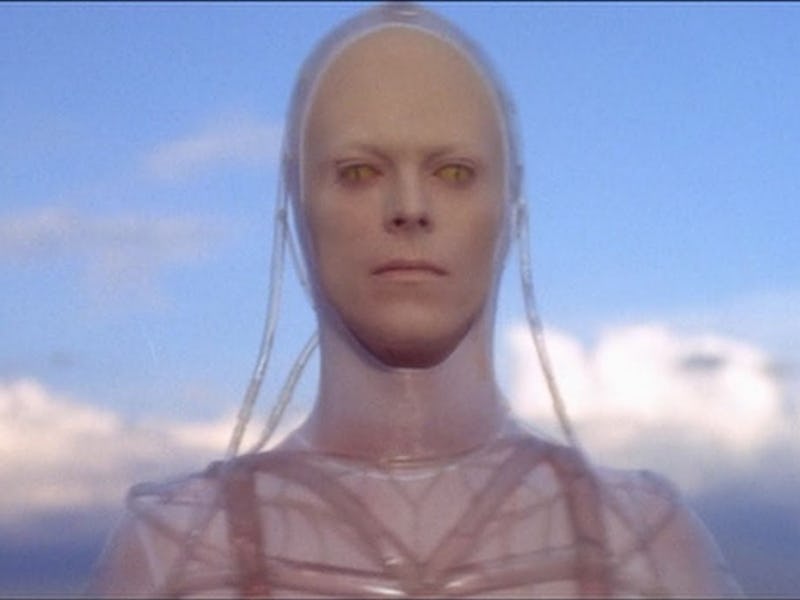You need to watch the trippiest sci-fi movie on Amazon Prime ASAP
The Man Who Fell to Earth changed how we see David Bowie, forever

The year is 1976 and David Bowie is the hottest artist on the planet. In March he releases Station to Station, wowing critics with his seemingly effortless ability to meld soul music and krautrock. There’s nothing quite like Bowie in this period as he movies between various interests in soul and rock while creating alien music that, in the words of critic Robert Chistagu, “sounds like he's singing to us via satellite.”
A few months later, he would further cement that idea with his starring role in Nicolas Roeg’s The Man Who Fell To Earth.
The psychedelic poster for a psychedelic movie.
Six years prior to The Man’s release in 1969, 2001: A Space Odyssey had opened the door for existential science fiction. Movies were no longer just imagining the future, but they were also looking at new ways of describing it.
Around this time, Roeg (who died this September at 90) was starting to do the same thing in England. His first movie, Performance, offers clues as to what would be coming down the pipeline: a popular musician (in this case, Mick Jagger) starring in a visually stunning and somewhat confusing look at humanity with lots of explicit sex and violence.
Two films later, Roeg would look to The Man Who Fell To Earth, a 1963 novel by Walter Tevis, to combine his cinematic eye with the trends set by 2001.
Bowie and Roeg on set.
There's a lot of staring in this movie.
Both film and novel tell the sad story of Thomas Jerome Newton, an alien who has come to Earth to find relief for his dying homeworld. Newton is a genius, able to quickly amass tremendous wealth through patents on new technologies. His hope is to build a spaceship and send water back to his planet. Along the way, though, he becomes entangled in the lives of people on Earth, becoming forlorn and despondent.
Eventually, the government is able to discern his identity and traps him in a lush hotel room, where he becomes a despondent alcoholic. By the end of the movie he is still rich and beautiful, yet totally alone.
One need not have a cinema studies degree to see the metaphors of fame that lie within The Man Who Fell To Earth. As Newton, Bowie is able to make everyone around him rich and happy with his inventions — yet he is still miserable and ultimately alone. His works of genius are taken from him and nothing is given back.
One aspect of the movie that gets overlooked by its trippy montages is how good it functions as a film about business. Buck Henry is great as the patent lawyer whose life is totally changed when Newton asks him to head his company, and Rip Torn is perfectly sleazy as the college professor who stops sleeping with his students to figure out the secret behind Newton’s success.
Rip Torn is sleazy as hell in this one.
But the key to the movie is Bowie. Newton is delicate — he can’t handle being in a car going over 30 MPH, being in an elevator makes him nauseous. Bowie plays it with a straightforward innocence that is slowly overtaken by his desires for alcohol and television.
The movie is very much of its time, which means that it occasionally mistakes being slow and ponderous with depth. But it’s a fascinating attempt, with both director and star trying to push a genre and themselves forward into parts unknown.
The Man Who Fell to Earth is streaming now on Amazon Prime.
This article was originally published on